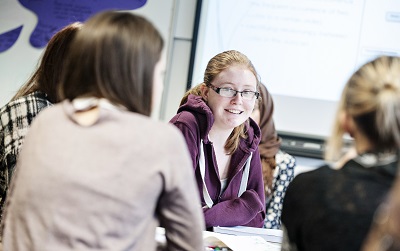A NEW toolkit which helps Higher Education Institutions to get to grips with phenomenon- based learning has launched today.

SCoLPP worked with students from Staffordshire University and Harper Adams University to test the phenomenon-based learning apporach.
We are delighted to launch the toolkit which uses real life phenomena to develop students and graduates who can go on to work collaboratively in international contexts to tackle global challenges.
Published and funded by QAA, the toolkit builds on guidance for Universities to embed Education for Sustainable Development into their curriculum.
The work to develop the toolkit has been led by Staffordshire Centre of Learning and Pedagogic Practice (SCoLPP). In partnership with Harper Adams University the team worked with students from both institutions to test the phenomenon-based learning approach.
SCoLPP Pedagogic Projects Development Manager Associate Professor Kate Cuthbert said: “Sustainable development is something which impacts us all, our society and our economy, and it is necessary to equip students with the knowledge and skills they need to work towards a sustainable future.
”We have drawn on evidence of what works across the globe and worked collaboratively with Harper Adams, to rigorously test phenomenon based learning as a vehicle for implementing Sustainable Development Goals within the curriculum - within subjects, across programme areas and at different academic levels.”
The resulting toolkit consists of a series of videos and printable resources to help introduce what phenomenon-based learning is as well as checklists to help with planning, “get ready” packs for students and design dialogue sheets to guide planning discussions.
It also includes a “what if” starter pack which responds to 17 UN Sustainable Development Goals providing learning opportunities across the disciplines.
Senior Research Fellow in SCoLPP Sue Lee said: “The tools have been generated from working with students from our two institutions in a series of workshops. This enabled students to engage in phenomenon-based learning and to provide structured feedback on its value as a teaching approach.”
Staffordshire University Pro Vice-Chancellor (Academic) Professor Annabel Kiernan added: “We are delighted to launch the toolkit which uses real life phenomena to develop students and graduates who can go on to work collaboratively in international contexts to tackle global challenges.”
“This project has really furthered our work in phenomenon-based learning and we are delighted to be sharing our learning with others across the sector and contributing new pedagogic approaches for the future.”
Universities and educators can access the toolkit for implementing Phenomenon Based Learning as part of a future proofed SDG HE curriculum by clicking here.
For more information on the toolkit and the QAA funded project, email kate.cuthbert@staffs.ac.uk.